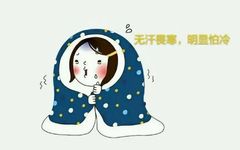In the previous ten articles about the common cold, we discussed the understanding of the common cold in modern medicine and Traditional Chinese Medicine (TCM), the classification of the common cold in TCM, necessary examinations for the common cold, and the differences between the common cold and influenza. Today, this article will discuss how to choose Chinese patent medicines for wind-cold common cold.
The typical manifestations of wind-cold common cold include: significant chills, mild fever, cough with clear and thin phlegm, nasal congestion with clear nasal discharge, muscle pain, headache, no obvious dry mouth, preference for warm water, normal or loose stools, clear urine, pale red tongue, thin white and moist tongue coating, and floating or tight pulse.
Wind-cold common cold can be further divided into wind-cold excess syndrome and wind-cold deficiency syndrome. Wind-cold excess syndrome generally presents with more pronounced symptoms of chills, fever, headache, and body aches, with no sweating and a floating tight pulse; while wind-cold deficiency syndrome generally presents with milder symptoms of chills, fever, headache, and body aches, with sweating or more sweating, and a floating relaxed pulse.
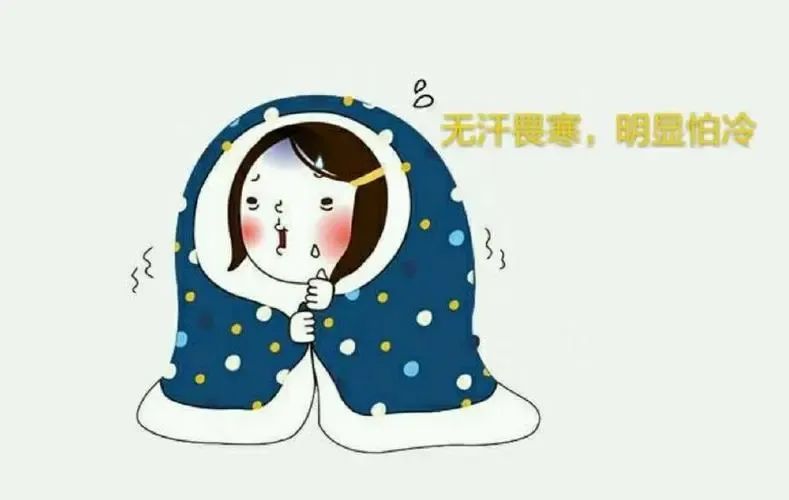
This article selects 15 types of Chinese patent medicines that are currently most commonly used in clinical practice and easiest to purchase for the treatment of wind-cold common cold, discussing the selection strategy and the composition, analysis, indications, contraindications, and precautions for each medicine.
The 15 types of Chinese patent medicines for treating wind-cold common cold introduced in this article are: Wind-Cold Common Cold Granules, Common Cold Dispelling Wind Granules, Jingfang Granules, Cold Stopping Capsules, Zheng Chaihu Decoction Granules, Guizhi Granules, Tongxuan Lipei Pills, Chuanxiong Tea Adjusting Granules, Gegen Decoction Granules, Huoxiang Zhengqi Capsules, Wushi Tea Granules, Common Cold Soft Capsules, Four Seasons Common Cold Tablets, Common Cold Clearing Heat Granules, and Jiuwei Qianghuo Granules.
1. Detailed Explanation of Different Wind-Cold Common Cold Chinese Patent Medicines:
1. Wind-Cold Common Cold Granules:
Composition: Ma Huang (Ephedra), Gui Zhi (Cinnamon Twig), Ku Xing Ren (Bitter Apricot Kernel), Gan Cao (Licorice), Ge Gen (Kudzu Root), Zi Su Ye (Perilla Leaf), Fang Feng (Siler), Bai Zhi (Angelica Dahurica), Chen Pi (Aged Tangerine Peel), Jie Geng (Platycodon Root), Gan Jiang (Dried Ginger). Excipients: Sucrose, Dextrin.
Analysis: This medicine is modified from the representative formula Ma Huang Tang (Ephedra Decoction) for treating wind-cold excess syndrome, with a strong effect in dispersing wind-cold, suitable for those with predominant wind-cold excess common cold.
Indications: For those with predominant wind-cold excess common cold, symptoms include significant chills, accompanied by fever, headache, body aches, nasal congestion, clear nasal discharge, no sweating, and cough.
Contraindications: Not suitable for those with excessive sweating or wind-heat common cold.
Precautions: Ma Huang has a certain effect of raising blood pressure; patients with hypertension should closely monitor blood pressure changes when using it; athletes should be cautious with products containing Ma Huang; this medicine is relatively warm and dry, which may lead to fetal movement instability; pregnant women should weigh the pros and cons under the guidance of a doctor before deciding whether to use it; this medicine contains sucrose, so diabetic patients should use it cautiously; those with severe liver and kidney dysfunction should use it cautiously; this medicine is not suitable for long-term use.
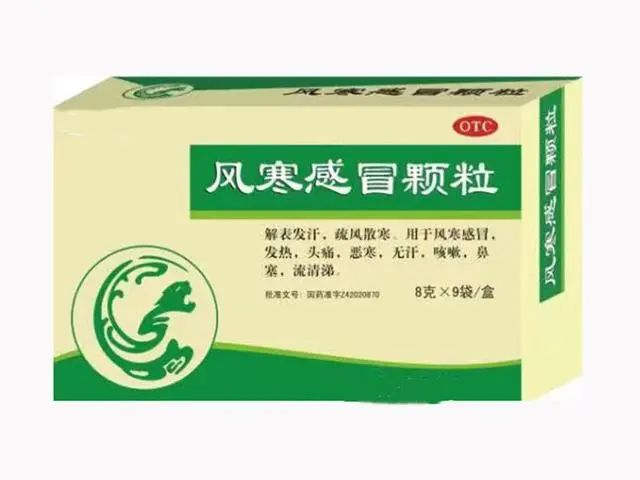
2. Common Cold Dispelling Wind Granules:
Composition: Ma Huang (Ephedra), Gui Zhi (Cinnamon Twig), Ku Xing Ren (Bitter Apricot Kernel), Gan Cao (Licorice), Bai Shao (White Peony, wine-fried), Zi Su Ye (Perilla Leaf), Fang Feng (Siler), Jie Geng (Platycodon Root), Gu Ya (Barley Sprout, fried), Du Huo (Angelica Pubescens), Da Zao (Jujube), Sheng Jiang (Fresh Ginger). Excipients: Sucrose, Dextrin.
Analysis: This medicine is modified from the representative formula Ma Huang Tang (Ephedra Decoction) for treating wind-cold excess syndrome, with a strong effect in dispersing wind-cold, suitable for those with predominant wind-cold excess common cold.
Indications, contraindications, and precautions are basically the same as for Wind-Cold Common Cold Granules.
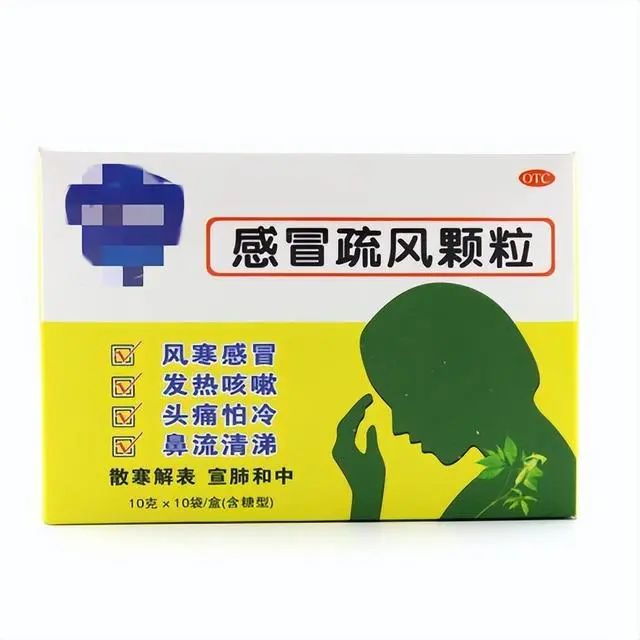
3. Jingfang Granules:
Composition: Jing Jie (Schizonepeta), Fang Feng (Siler), Chai Hu (Bupleurum), Zhi Qiao (Bitter Orange), Qiang Huo (Notopterygium), Du Huo (Angelica Pubescens), Chuan Xiong (Chuanxiong Rhizome), Qian Hu (Peucedanum), Jie Geng (Platycodon Root), Gan Cao (Licorice), Fu Ling (Poria). Excipients: Sucrose.
Analysis: This medicine is the original formula of Jing Fang Bai Du San (Schizonepeta and Siler Powder) for treating wind-cold excess common cold, with a moderate effect in dispersing wind-cold, suitable for those with moderate wind-cold excess common cold.
Indications: For those with moderate wind-cold excess common cold, symptoms include chills and fever, headache, body aches, nasal congestion, clear nasal discharge, no sweating, and cough.
Contraindications: Not suitable for those with excessive sweating or wind-heat common cold.
Precautions: Chuan Xiong has a blood-activating effect, and Zhi Qiao has a strong qi-moving effect, which may increase the risk of miscarriage; pregnant women should weigh the pros and cons under the guidance of a doctor before deciding whether to use it; this medicine contains sucrose, so diabetic patients should use it cautiously; those with severe liver and kidney dysfunction should use it cautiously.
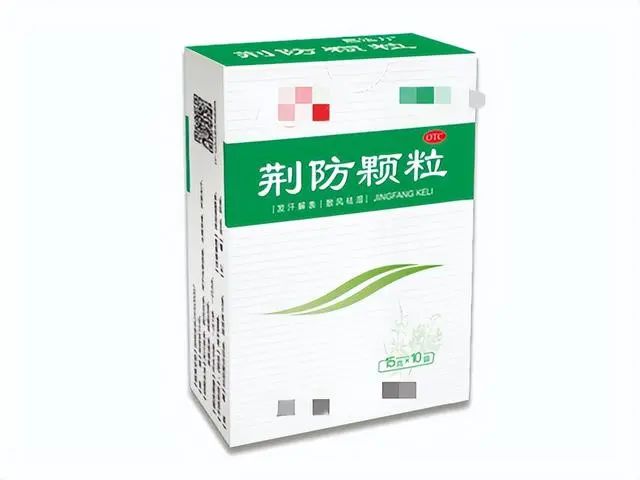
4. Cold Stopping Capsules:
Composition: Ma Huang (Ephedra), Bai Zhi (Angelica Dahurica), Jing Jie (Schizonepeta), Cang Zhu (Atractylodes), Chen Pi (Aged Tangerine Peel), Gan Cao (Licorice).
Analysis: This medicine has a weaker effect in dispersing wind-cold compared to Wind-Cold Common Cold Granules, suitable for those with mild wind-cold excess common cold.
Indications: For those with mild wind-cold excess common cold, symptoms include chills and fever, headache, body aches, nasal congestion, clear nasal discharge, no sweating, and cough.
Contraindications: Not suitable for those with excessive sweating or wind-heat common cold.
Precautions: Ma Huang has a certain effect of raising blood pressure; patients with hypertension should closely monitor blood pressure changes when using it; athletes should be cautious with products containing Ma Huang; pregnant women should decide whether to take it after a comprehensive assessment by a doctor.
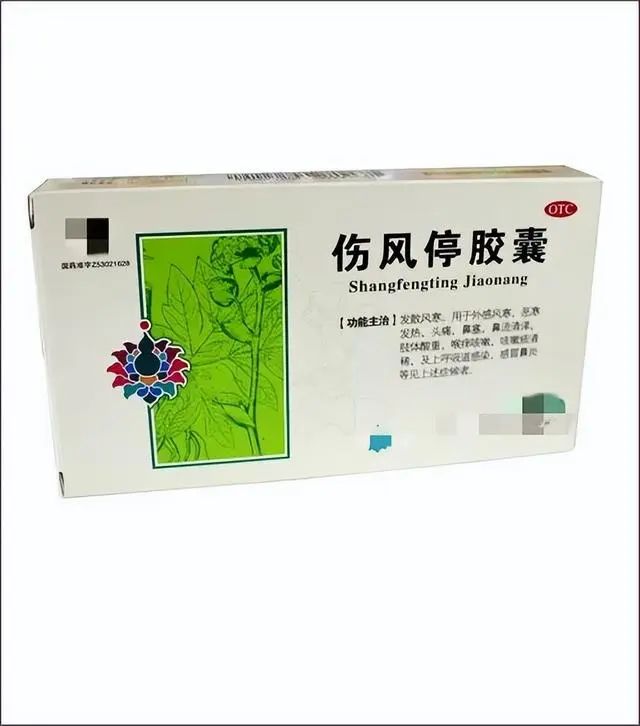
5. Zheng Chaihu Decoction Granules:
Composition: Chai Hu (Bupleurum), Chi Shao (Red Peony), Chen Pi (Aged Tangerine Peel), Fang Feng (Siler), Sheng Jiang (Fresh Ginger), Gan Cao (Licorice). Excipients: Dextrin, Sucrose.
Analysis: This is the original formula of Zheng Chaihu Decoction for treating mild wind-cold common cold.
Indications: For those with mild wind-cold common cold, symptoms include chills and fever, headache, body aches, nasal congestion, and clear nasal discharge.
Contraindications: This product has a milder effect and no obvious contraindications.
Precautions: Chi Shao has a certain blood-activating effect, which may increase the risk of miscarriage; pregnant women should weigh the pros and cons under the guidance of a doctor before deciding whether to use it; this medicine contains sucrose, so diabetic patients should use it cautiously.
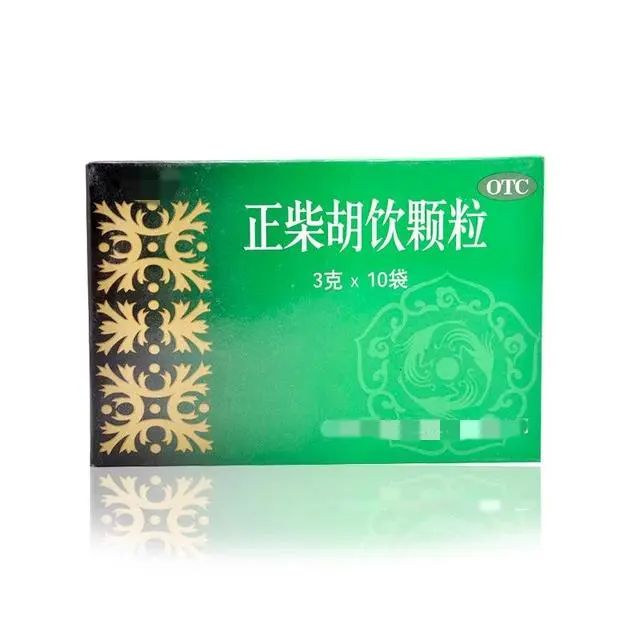
6. Guizhi Granules:
Composition: Gui Zhi (Cinnamon Twig), Bai Shao (White Peony), Sheng Jiang (Fresh Ginger), Da Zao (Jujube), Gan Cao (Licorice). Excipients: Dextrin, Lactose, Beta Cyclodextrin.
Analysis: This is the original formula of Gui Zhi Tang (Cinnamon Twig Decoction) for treating wind-cold deficiency common cold, suitable for those with wind-cold deficiency common cold.
Indications: For wind-cold deficiency common cold, symptoms include predominant chills, accompanied by fever, sweating, headache, body aches, nasal congestion with clear discharge.
Contraindications: Not suitable for those without sweating and those with wind-heat common cold.
Precautions: This medicine is relatively warm and dry, which may lead to fetal movement instability; pregnant women should weigh the pros and cons under the guidance of a doctor before deciding whether to use it; diabetic patients should use it cautiously.
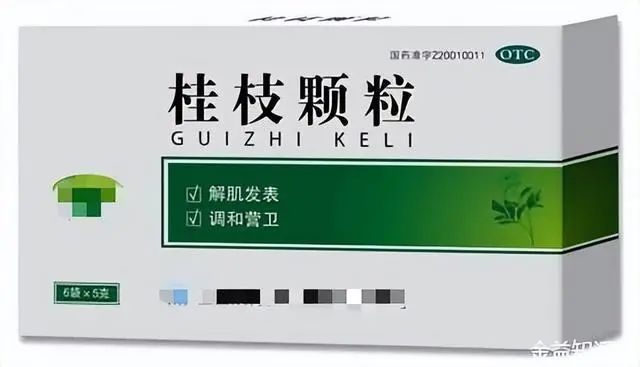
7. Tongxuan Lipei Pills:
Composition: Ma Huang (Ephedra), Ku Xing Ren (Bitter Apricot Kernel), Gan Cao (Licorice), Ban Xia (Pinellia, processed), Chen Pi (Aged Tangerine Peel), Fu Ling (Poria), Zhi Qiao (Bitter Orange, fried), Qian Hu (Peucedanum), Jie Geng (Platycodon Root), Huang Qin (Scutellaria). Excipients: Honey as a filler.
Analysis: This medicine is derived from the cough-relieving formula San Yao Tang (Three Yao Decoction) combined with the phlegm-resolving formula Er Chen Tang (Two Aged Decoction), which disperses wind-cold while having a good cough-relieving and phlegm-resolving effect, and added Huang Qin for a certain clearing lung heat effect, suitable for those with external wind-cold accompanied by significant cough and phlegm and mild lung heat.
Indications: For those with external wind-cold accompanied by significant cough and phlegm and mild lung heat, symptoms include fever, chills, no sweating, body aches, cough, phlegm, headache, and nasal congestion with runny nose.
Contraindications: Not suitable for those with excessive sweating or wind-heat common cold.
Precautions: Ma Huang has a certain effect of raising blood pressure; patients with hypertension should closely monitor blood pressure changes when using it; athletes should be cautious with products containing Ma Huang; this medicine is relatively warm and dry, which may lead to fetal movement instability, and contains Ban Xia (processed), which may increase the risk of miscarriage; pregnant women should weigh the pros and cons under the guidance of a doctor before deciding whether to use it; those with severe liver and kidney dysfunction should use it cautiously; the excipients contain honey, so diabetic patients should use it cautiously.
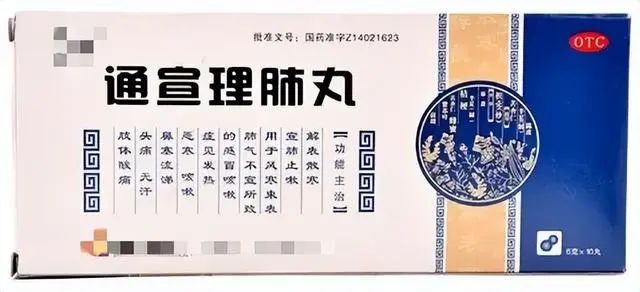
8. Chuanxiong Tea Adjusting Granules:
Composition: Chuan Xiong (Chuanxiong Rhizome), Qiang Huo (Notopterygium), Bai Zhi (Angelica Dahurica), Jing Jie (Schizonepeta), Fang Feng (Siler), Xi Xin (Asarum), Bo He (Mint), Gan Cao (Licorice). Excipients: Lactose, Dextrin.
Analysis: This medicine is the original formula of Chuanxiong Tea Adjusting Powder for treating headaches caused by external wind-cold, while treating wind-cold common cold, it also has a good effect on relieving headaches.
Indications: Suitable for those with wind-cold common cold and significant headache, symptoms include significant headache, accompanied by fever, chills, muscle soreness, nasal congestion with clear discharge.
Contraindications: Not suitable for those with wind-heat common cold.
Precautions: This medicine contains Chuan Xiong, which has a certain blood-activating effect, which may increase the risk of miscarriage; pregnant women should weigh the pros and cons under the guidance of a doctor before deciding whether to use it; Xi Xin has slight toxicity and contains a small amount of aristolochic acid, so this medicine is recommended to be used for a short duration; diabetic patients should use it cautiously.
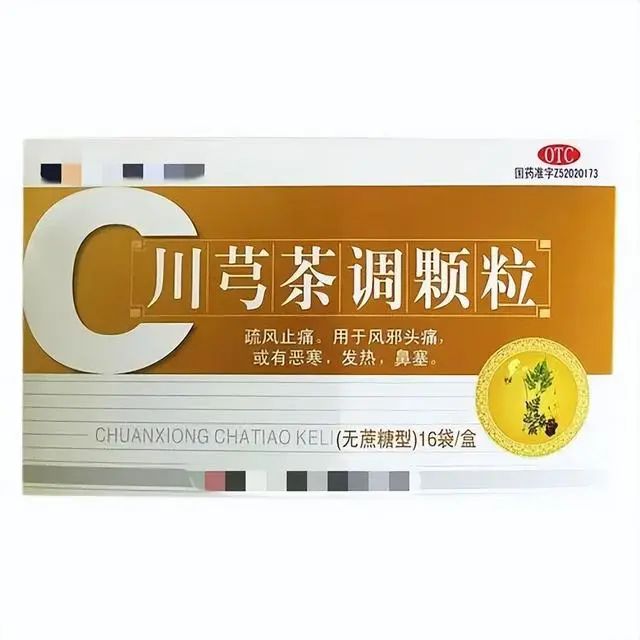
9. Gegen Decoction Granules:
Composition: Ge Gen (Kudzu Root), Ma Huang (Ephedra), Gui Zhi (Cinnamon Twig), Bai Shao (White Peony), Sheng Jiang (Fresh Ginger), Da Zao (Jujube), Gan Cao (Licorice).
Analysis: This medicine is the original formula of Gegen Tang (Kudzu Decoction) for treating wind-cold excess syndrome with stiffness and pain in the neck and shoulders, while treating wind-cold common cold, it also has a good effect in relieving stiffness and pain in the neck and shoulders.
Indications: Suitable for those with wind-cold common cold and significant stiffness and pain in the neck and shoulders, symptoms include significant stiffness and pain in the neck and shoulders, accompanied by fever, chills, body aches, nasal congestion with clear discharge, and no sweating.
Contraindications: Not suitable for those with excessive sweating or wind-heat common cold.
Precautions: Ma Huang has a certain effect of raising blood pressure; patients with hypertension should closely monitor blood pressure changes when using it; athletes should be cautious with products containing Ma Huang; this medicine is relatively warm and dry, which may lead to fetal movement instability; pregnant women should weigh the pros and cons under the guidance of a doctor before deciding whether to use it; this medicine is not suitable for long-term use.
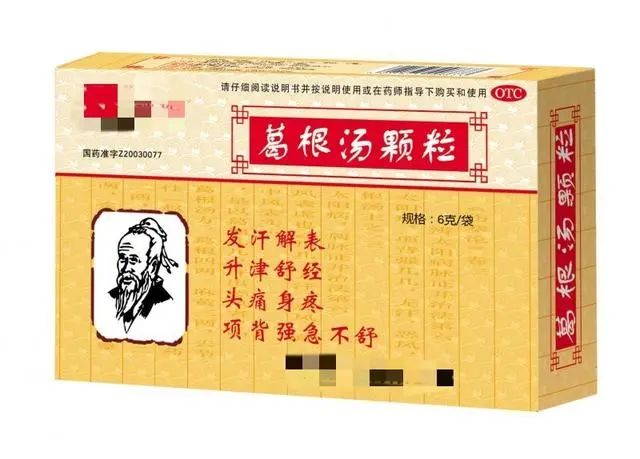
10. Huoxiang Zhengqi Capsules:
Composition: Guang Huoxiang (Agastache), Bai Zhi (Angelica Dahurica), Zi Su Ye (Perilla Leaf), Fa Ban Xia (Pinellia, processed), Chen Pi (Aged Tangerine Peel), Hou Po (Magnolia Bark, ginger-prepared), Bai Zhu (Atractylodes, fried), Fu Ling (Poria), Da Fu Pi (Trichosanthes), Jie Geng (Platycodon Root), Gan Cao (Licorice), Da Zao (Jujube), Sheng Jiang (Fresh Ginger). Excipients: Starch, Silicon Dioxide, Magnesium Stearate.
Analysis: This medicine is the original formula of Huoxiang Zhengqi San (Agastache and Qi-Invigorating Powder) for treating external wind-cold with internal damp stagnation, which can treat wind-cold common cold while effectively alleviating discomfort such as vomiting, diarrhea, and abdominal distension.
Indications: Suitable for those with external wind-cold and internal damp stagnation, symptoms include chills and fever, heavy head, chest tightness, abdominal distension, vomiting, and diarrhea.
Contraindications: Not suitable for those with wind-heat common cold.
Precautions: This medicine contains Fa Ban Xia and Hou Po, which may increase the risk of miscarriage; pregnant women should weigh the pros and cons under the guidance of a doctor before deciding whether to use it; those with severe liver and kidney dysfunction should use it cautiously; this medicine is not the first choice for colds primarily presenting with respiratory symptoms; if purchasing Huoxiang Zhengqi Liquid, some formulations contain alcohol, and caution should be taken not to consume cephalosporins when taking alcohol-containing Huoxiang Zhengqi Liquid.
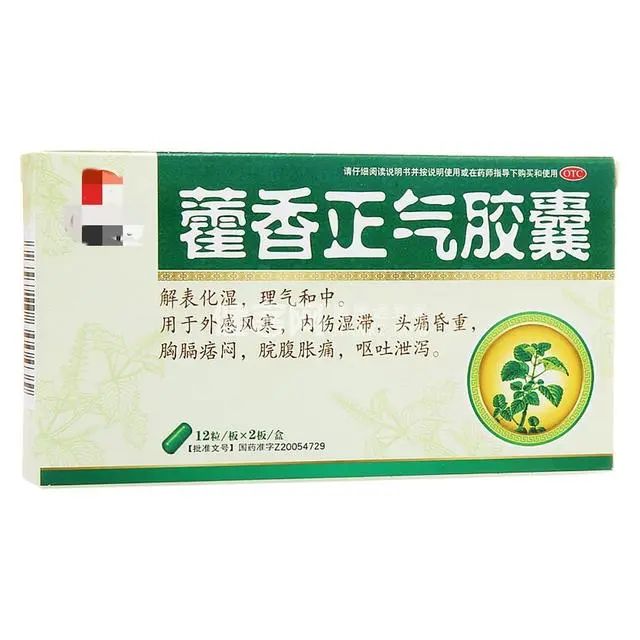
11. Wushi Tea Granules:
Composition: Guang Huoxiang (Agastache), Cang Zhu (Atractylodes), Fang Feng (Siler), Bai Zhi (Angelica Dahurica), Chai Hu (Bupleurum), Qiang Huo (Notopterygium), Qian Hu (Peucedanum), Chuan Xiong (Chuanxiong Rhizome), Chen Pi (Aged Tangerine Peel), Shan Zha (Hawthorn), Chao Mai Ya (Fried Barley Sprout), Zhi Shi (Bitter Orange), Jie Geng (Platycodon Root), Zi Su Ye (Perilla Leaf), Hou Po (Magnolia Bark), Hong Cha (Black Tea), Liu Shen Qu (Fried Fermented Rice), Gan Cao (Licorice). Excipients: Sucrose.
Analysis: This medicine has similar overall effects to Huoxiang Zhengqi Capsules, mainly treating external wind-cold with internal damp stagnation, but this medicine has a stronger digestive effect, making it more suitable for those with food accumulation.
Indications: Suitable for those with external wind-cold, internal cold dampness, and food accumulation, symptoms include chills and fever, body aches, chest tightness, abdominal distension, vomiting, and diarrhea.
Contraindications: Not suitable for those with wind-heat common cold.
Precautions: This medicine contains Zhi Shi, Hou Po, and Chuan Xiong, which may increase the risk of miscarriage; pregnant women should weigh the pros and cons under the guidance of a doctor before deciding whether to use it; those with severe liver and kidney dysfunction should use it cautiously; this medicine is not the first choice for colds primarily presenting with respiratory symptoms; this medicine contains sucrose, so diabetic patients should use it cautiously.
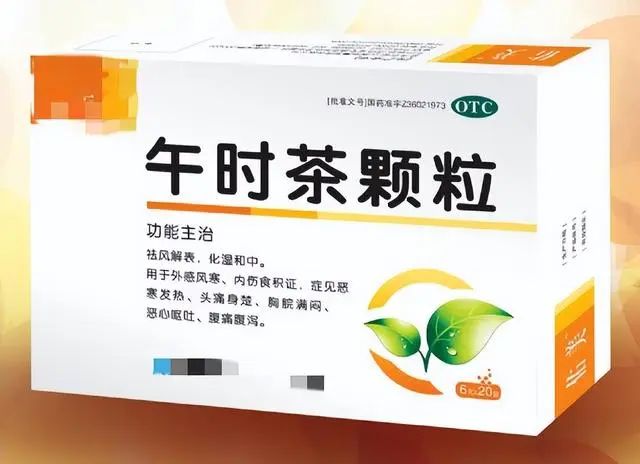
12. Common Cold Soft Capsules:
Composition: Ma Huang (Ephedra), Gui Zhi (Cinnamon Twig), Qiang Huo (Notopterygium), Jing Jie (Schizonepeta), Fang Feng (Siler), Bai Zhi (Angelica Dahurica), Chuan Xiong (Chuanxiong Rhizome), Ge Gen (Kudzu Root), Bo He (Mint), Ku Xing Ren (Bitter Apricot Kernel), Dang Gui (Angelica Sinensis), Shi Chang Pu (Acorus), Jie Geng (Platycodon Root), Huang Qin (Scutellaria). Excipients: Vegetable Oil.
Analysis: This medicine is a combination of the representative formulas Ma Huang Tang (Ephedra Decoction) and Jing Fang Da Biao Tang (Schizonepeta and Siler Powder), but it also includes a small amount of medicines for treating wind-heat common cold such as Ge Gen, Bo He, and Huang Qin, so this medicine is primarily for treating wind-cold excess common cold with mild internal heat.
Indications: For those with predominant wind-cold excess common cold with mild internal heat, symptoms include significant chills, accompanied by fever, body aches, nasal congestion with clear discharge, primarily clear discharge with a small amount of yellow discharge, cough, phlegm, and sore throat.
Contraindications: Not suitable for those with excessive sweating or wind-heat common cold.
Precautions: Ma Huang has a certain effect of raising blood pressure; patients with hypertension should closely monitor blood pressure changes when using it; athletes should be cautious with products containing Ma Huang; this medicine is relatively warm and dry, which may lead to fetal movement instability, and contains Chuan Xiong, which has a blood-activating effect; pregnant women should weigh the pros and cons under the guidance of a doctor before deciding whether to use it; this medicine is not suitable for long-term use.
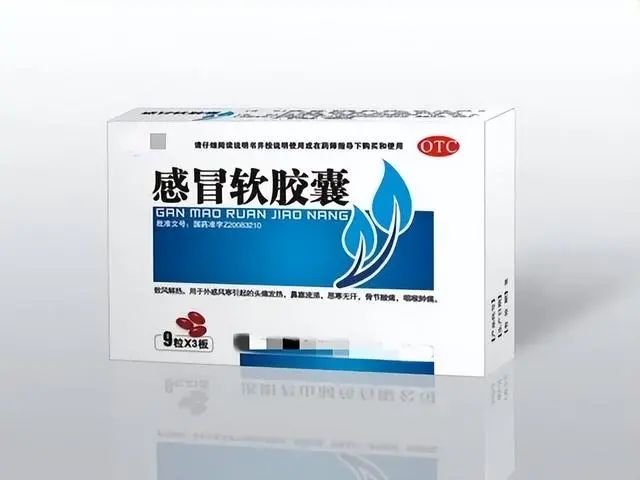
13. Four Seasons Common Cold Tablets:
Composition: Jing Jie (Schizonepeta), Zi Su Ye (Perilla Leaf), Fang Feng (Siler), Jie Geng (Platycodon Root), Chen Pi (Aged Tangerine Peel), Da Qing Ye (Isatis Leaf), Lian Qiao (Forsythia), Gan Cao (Licorice, fried), Xiang Fu (Cyperus, fried). Excipients: Starch, Dextrin.
Analysis: This medicine contains both wind-cold and wind-heat medicines in similar proportions, making it suitable for those with both wind-cold and wind-heat common cold; this medicine has a mild effect in dispelling both wind-cold and wind-heat, mainly suitable for mild common cold cases.
Indications: Suitable for those with both wind-cold and wind-heat and mild common cold, symptoms include chills and fever, body aches, nasal congestion with clear discharge, both clear and yellow discharge, sore throat, and cough with dry throat.
Contraindications: No special contraindications.
Precautions: Diabetic patients should use it cautiously.
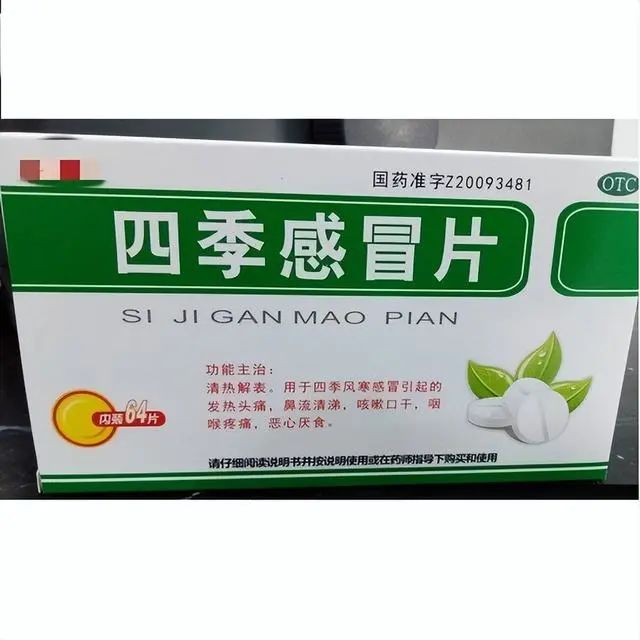
14. Common Cold Clearing Heat Granules:
Composition: Jing Jie (Schizonepeta), Zi Su Ye (Perilla Leaf), Bo He (Mint), Fang Feng (Siler), Chai Hu (Bupleurum), Ge Gen (Kudzu Root), Jie Geng (Platycodon Root), Bai Zhi (Angelica Dahurica), Ku Xing Ren (Bitter Apricot Kernel), Ku Di Ding (Bitter Herb), Lu Gen (Reed Rhizome). Excipients: Sucrose, Dextrin.
Analysis: This medicine has similar effects to Four Seasons Common Cold Tablets.
Indications, contraindications, and precautions are the same as for Four Seasons Common Cold Tablets.
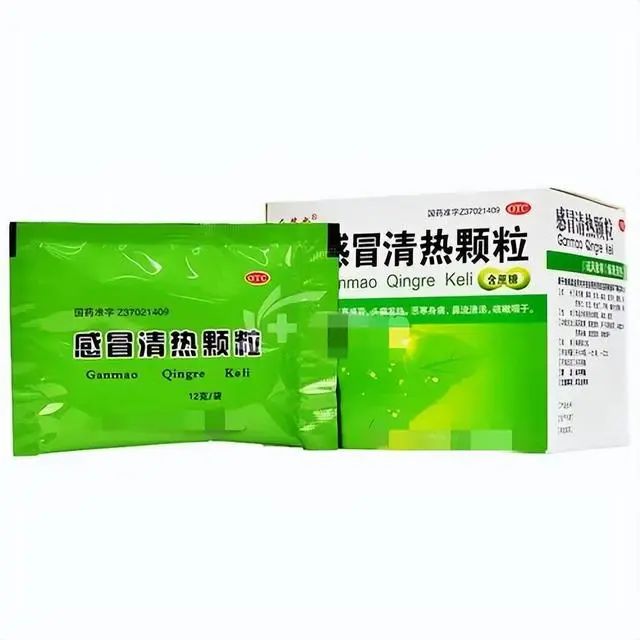
15. Jiuwei Qianghuo Granules:
Composition: Qiang Huo (Notopterygium), Cang Zhu (Atractylodes), Fang Feng (Siler), Bai Zhi (Angelica Dahurica), Chuan Xiong (Chuanxiong Rhizome), Xi Xin (Asarum), Huang Qin (Scutellaria), Gan Cao (Licorice), Di Huang (Rehmannia).
Analysis: This medicine is the original formula of Jiuwei Qianghuo Tang (Nine Flavor Notopterygium Decoction) for treating external wind-cold dampness with mild internal heat, mainly effective in dispersing wind-cold dampness, and also includes Huang Qin and Di Huang to nourish yin and clear heat, making it suitable for those with external wind-cold dampness and mild internal heat common cold.
Indications: Suitable for those with external wind-cold dampness and mild internal heat common cold, symptoms include chills, fever, body aches, dry throat, nasal congestion with clear discharge.
Contraindications: Not suitable for those with wind-heat common cold.
Precautions: Xi Xin has slight toxicity and contains a small amount of aristolochic acid, so this medicine is recommended to be used for a short duration; Chuan Xiong has a certain blood-activating effect, which may increase the risk of miscarriage; pregnant women should weigh the pros and cons under the guidance of a doctor before deciding whether to use it; those with severe liver and kidney dysfunction should use it cautiously.
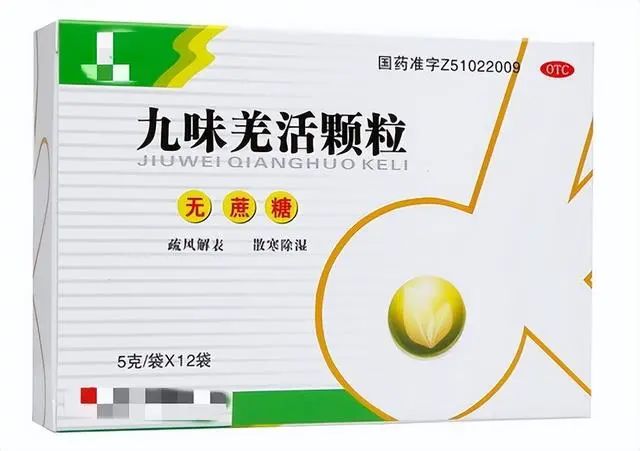
2. Summary of Selection Strategies for Wind-Cold Common Cold Chinese Patent Medicines:
1. For wind-cold excess common cold: significant chills and fever, headache, and body aches are very obvious, with no sweating; options include Wind-Cold Common Cold Granules, Common Cold Dispelling Wind Granules, Jingfang Granules, Cold Stopping Capsules, Zheng Chaihu Decoction Granules; choose one of these.
2. For wind-cold deficiency common cold: chills and fever, headache, and body aches are relatively mild, with sweating or more sweating; choose Guizhi Granules.
3. For wind-cold common cold with significant cough and phlegm: choose Tongxuan Lipei Pills.
4. For wind-cold common cold with significant headache: choose Chuanxiong Tea Adjusting Granules.
5. For wind-cold excess common cold with significant stiffness and pain in the neck and shoulders: choose Gegen Decoction Granules.
6. For wind-cold common cold with significant gastrointestinal symptoms: choose Huoxiang Zhengqi Capsules or Wushi Tea Granules; choose one of these.
7. For wind-cold common cold with mild internal heat, such as significant sore throat, dry throat, and more yellow nasal discharge, choose Common Cold Soft Capsules, Four Seasons Common Cold Tablets, Common Cold Clearing Heat Granules, or Jiuwei Qianghuo Granules; choose one of these.
The above introduces the conventional methods for selecting Chinese patent medicines for wind-cold common cold. However, due to individual differences in conditions, it is recommended to use medications under the guidance of a doctor, especially for children, pregnant women, breastfeeding women, and those with multiple chronic diseases; do not self-medicate. If there is no significant relief after three days of medication or if symptoms worsen, it is advisable to visit a hospital for further examination. If there are significant symptoms such as palpitations, chest tightness, chest pain, or shortness of breath, attention should be paid to the possibility of lung infection or viral myocarditis, and timely hospital treatment is necessary.

